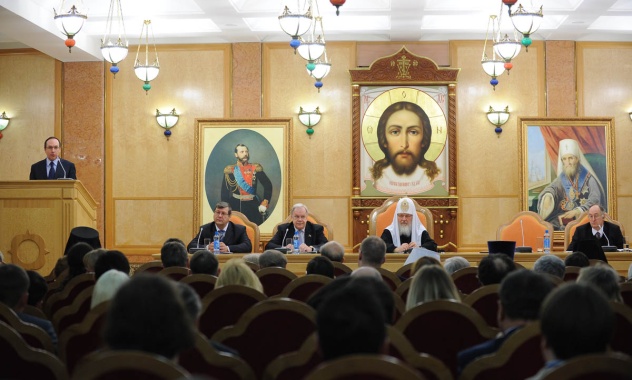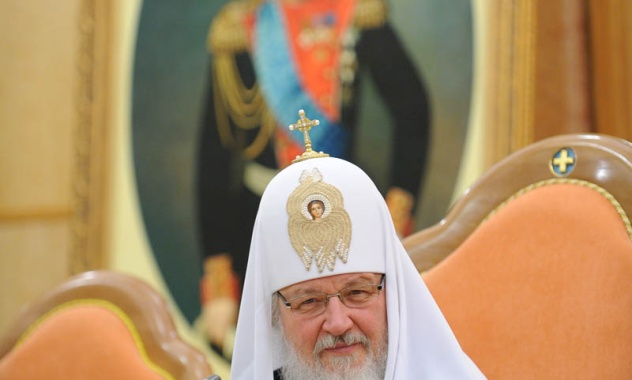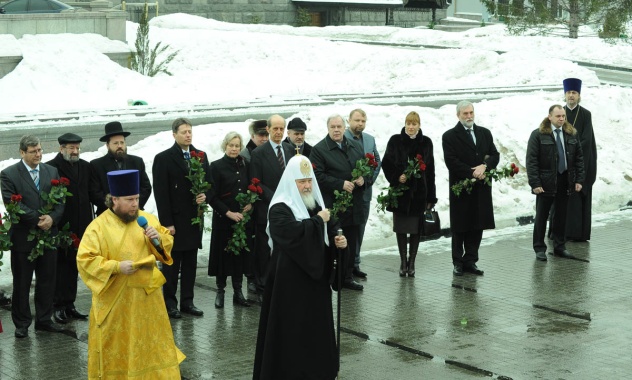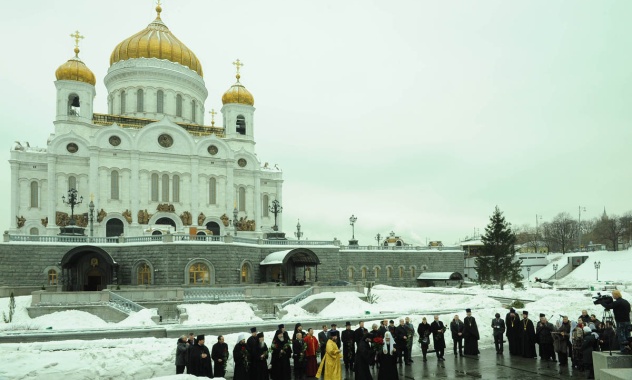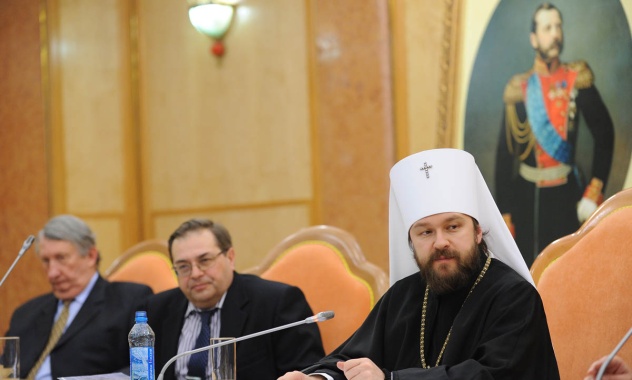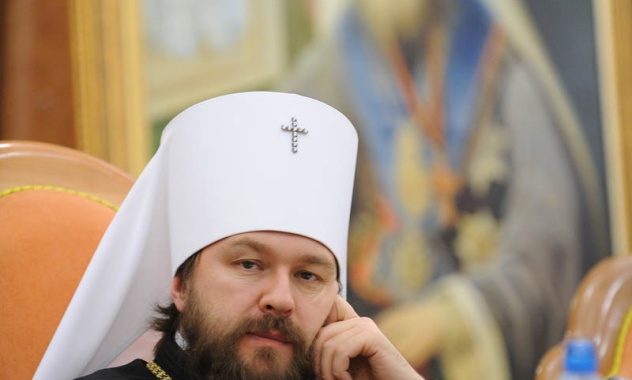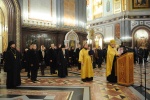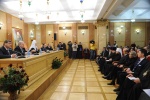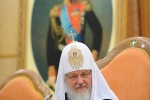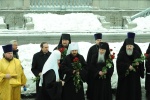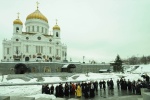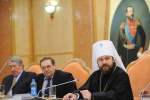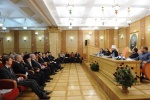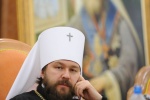150th anniversary of the end of serfdom in Russia is marked at the Cathedral of Christ the Saviour
On 3 March 2011, a grand meeting, “Great Reforms of the Emperor Alexander II – a Successful Example of Modernization,” dedicated to the 150th anniversary of the end of serfdom in Russia took place at the Bishops’ Hall of the Cathedral of Christ the Saviour.
Archpriest Mikhail Ryazantsev, the sacristan of the Cathedral, sang prayers to St. Philaret, Metropolitan of Moscow, before his reliquary, and celebrated a litiya for Emperor Alexander II.
His Holiness Patriarch Kirill of Moscow and All Russia presided at the meeting attended by many people, including Metropolitan Hilarion of Volokolamsk, head of the Moscow Patriarchate’s Department for External Church Relations, Archbishop Mark of Berlin, Germany and Great Britain, envoy of the Coordinating Centre of Muslims in the Northern Caucasus Shafig Pshikhachev, representative of the Buddhist traditional Sangha in Moscow Sanjei-Lama, chief Rabbi of Russia Adolf Shaevich.
His Holiness addressed the audience, and chairman of the State Duma Committee for public associations and religious organizations S. Popov read out greeting from the speaker of the Russian State Duma B. Gryzlov.
After the first part of the meeting, His Holiness Patriarch Kirill and high guests proceeded to the monument to Alexander II located by the Cathedral of Christ the Saviour, sang “Memory Eternal” to the Tsar Liberator and put flowers at the monument.
The meeting continued under chairmanship of Metropolitan Hilarion of Volokolamsk. In his address he spoke about the role and significance of the reforms for people’s life and for the growth of population in the 19th century that can be characterized as a population explosion. “Great reforms of Alexander II were an important landmark in Russian history, an example of a gradual and considered modernization of all spheres of life of the Russian state and society,” Metropolitan Hilarion noted.
He summed up the meeting, saying: “Real reforms that bring success and prosperity to people are impossible without the state basing itself on that what has always been the national conscience – the Church. Any modernization should be based on people’s will, which is expressed by the Church that acts today in close contact with other religious traditions of the country.” Metropolitan Hilarion noted that they put flowers at the monument to Alexander II together with Patriarch Kirill, thus bringing witness of their willingness to cooperate with the Russian Orthodox Church for the sake of our people’s well-being.










